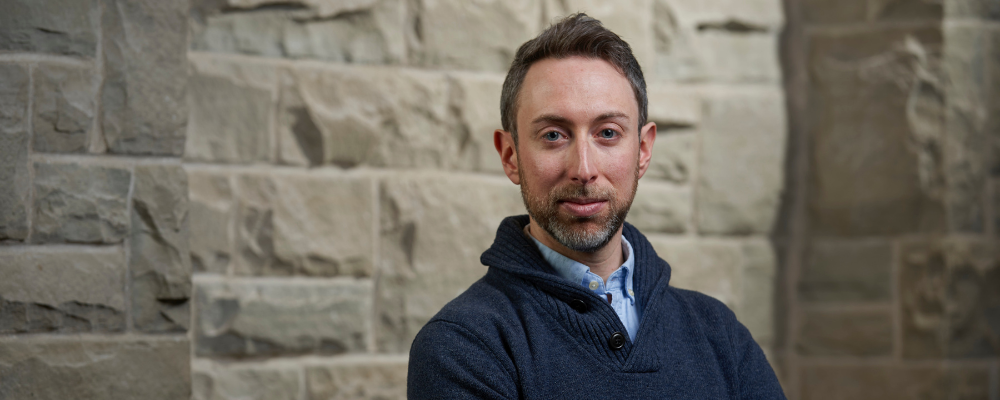Professor Ryan Liss receives Western Law's Teaching Excellence Award
April 20, 2023

Enthusiastic, engaging, approachable, and caring. These are all descriptors that students used in their evaluations of Professor Ryan Liss. For his demonstrated excellence in teaching and mentorship over the past three years, Liss was awarded Western Law’s Teaching Award of Excellence.
"Professor Liss...presents complex concepts in a clear way and is incredibly gracious about repeating and restating concepts to make sure students understand before moving on,” said a recent student. “He is kind and caring in his approach. He consistently makes himself available to students for extra support."
In the classroom, Liss employs a modified Socratic style that challenges and empowers students, making them active participants in their learning. He has also been innovative in his course delivery, conducting mock treaty drafting exercises in which students are assigned specific roles as representatives of various state and nongovernmental organizations.
“All of Professor Liss's courses reflect the careful thought and enormous effort he puts into course design,” said Associate Professor and Associate Dean, Research and Graduate Studies, Zoë Sinel. “Each course is planned around an overarching thematic question, thus giving students a coherent and engaging picture of the subject of study.”
Outside of the classroom, Professor Liss has shown a deep commitment to formal and informal mentorship, coaching the Philip C Jessup International Law moot, conducting mock interviews, and advising students on careers in international and domestic law.
Liss joined Western Law in 2018 as an Assistant Professor and teaches courses including International Criminal Law, Criminal Law, and Public International Law. He is also the Co-Director of the Public and Private International Law Research Group.
His research focuses on public international law (including international human rights law, international criminal law, and international humanitarian law) and criminal law, examining the ways in which human rights construct and constrain state power in both areas.
The Award for Teaching Excellence acknowledges the outstanding efforts of full-time faculty in fostering the academic and professional development of students. The criteria for selection include course design, classroom teaching, innovative course delivery and assessment methods, student mentorship, and educational leadership.






